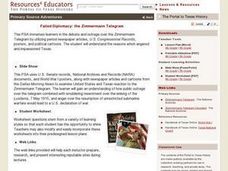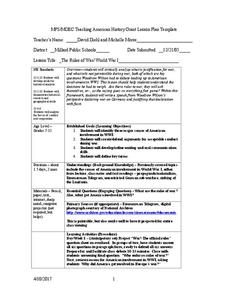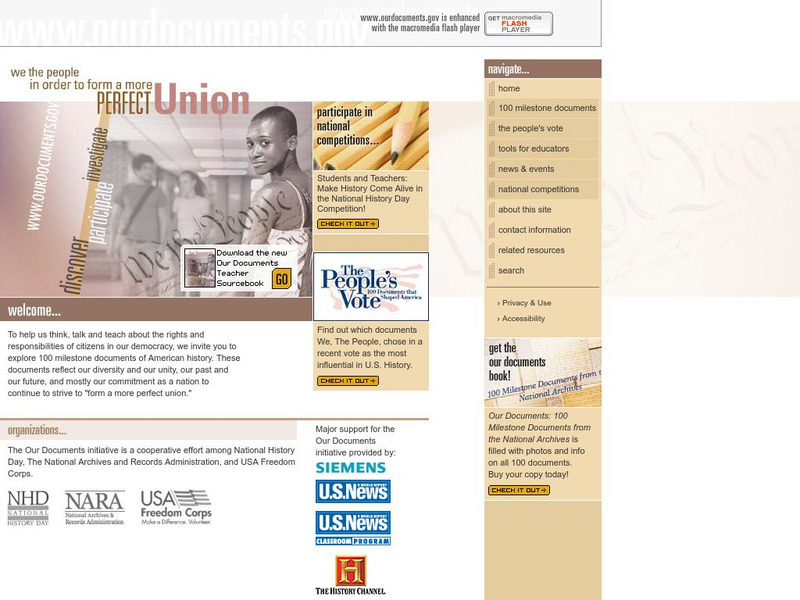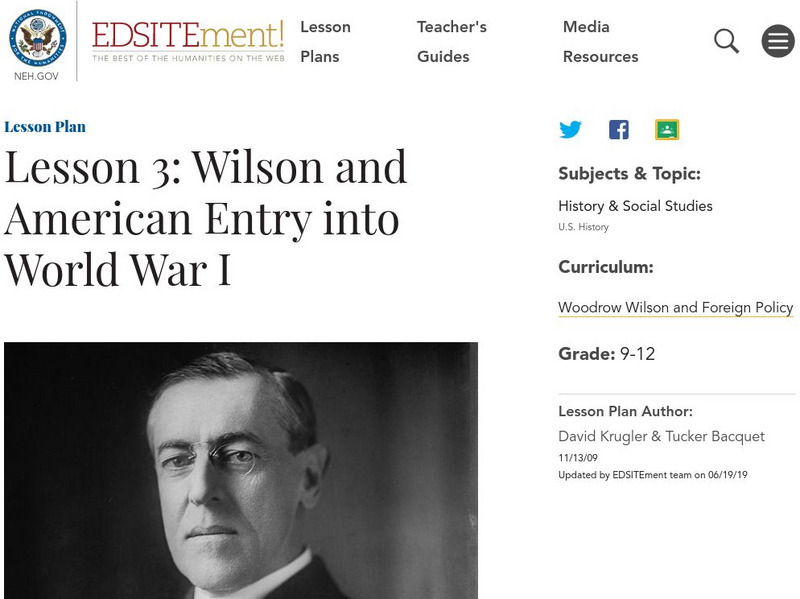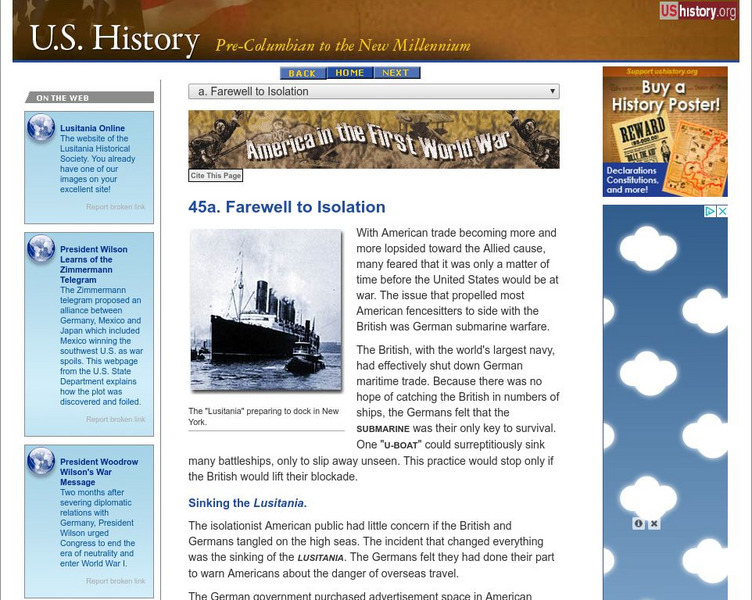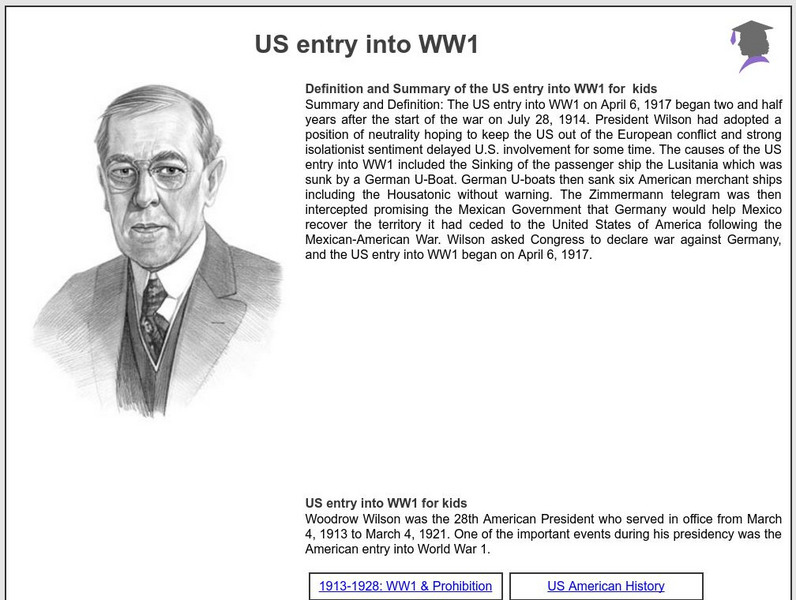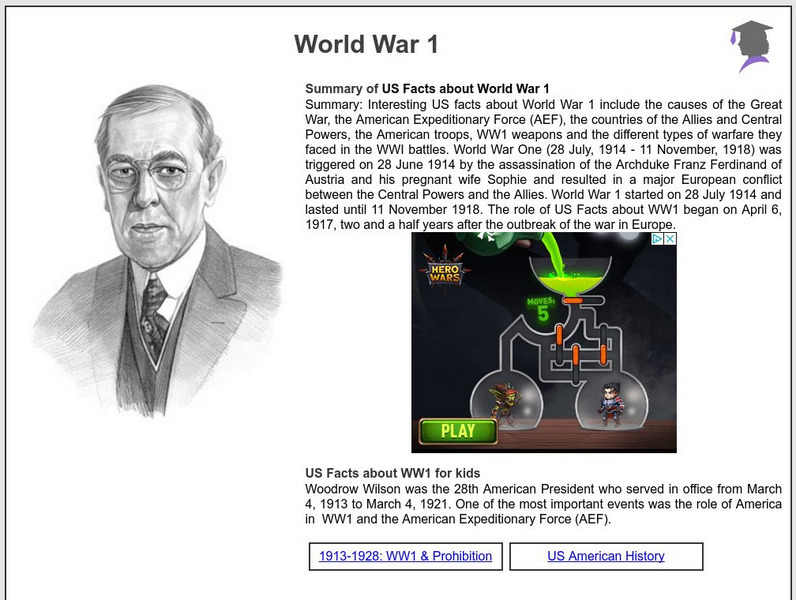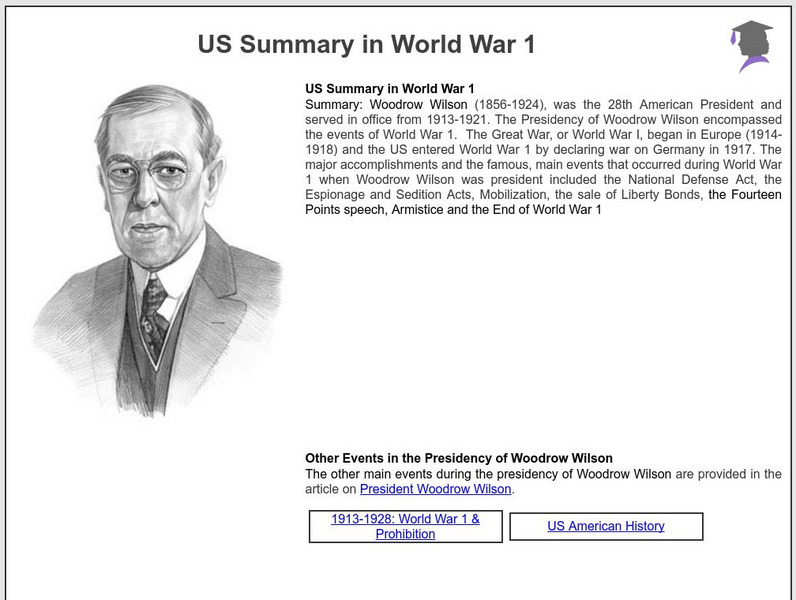DocsTeach
The Zimmermann Telegram
An enlightening activity explains how a telegram prompted the United States to enter World War I. Scholars examine the telegram and work to decode it. To finish, individuals complete a worksheet and participate in group discussion to...
Curated OER
The Zimmermann Telegram
Young scholars decode a fictitious message and write messages using the code. Students are shown the significance of the creation of the Zimmermann telegram to aid in communication and how it altered history.
Loudoun County Public Schools
World War I Causes Project
After completing this detailed and well-designed project, your young historians will be well-versed in their explanations of the reasons that various countries joined World War I! Learners design a picture book covering seven primary...
Curated OER
Failed Diplomacy: The Zimmerman Telegram
Seventh graders continue their examination of World War I. In groups, they read a copy of the famous Zimmerman telegram and discuss its effect on Americans. To end the activity, they discuss how public opinion changed after it became...
Curated OER
The Rules of War/World War I
Students explore the reasons the United States became involved in World War I. In this World History instructional activity, students research the reasons Woodrow Wilson made the decisions he did, prepare a debate and write a paper.
National History Day
Why Did the United States Enter World War I in 1917?
World War I was the first major conflict on a global scale. Using primary documents, learners determine why the United States chose to enter World War I when it did. After analytical writing and group research, the causes of America's...
US National Archives
Nara: Teaching With Documents: The Zimmerman Telegram
This is an excellent resource for anyone intersted in the Zimmermann Telegram: click to see the original coded message, the decoded message, and read about the implications of the telegram. This National Archives and Records...
Siteseen
Siteseen: American Historama: Zimmermann Telegram Facts
Comprehensive overview details how the Zimmermann telegram helped to bring about American entry into WW1.
Khan Academy
Khan Academy: Ap Us History/college History Unit: Period 7: 1890 1945
The study resource from Khan Academy provides a video lesson about the Zimmerman Telegram: Period 7: 1890-1945 in American History. This resource is designed as a review for the AP US History Test.
US National Archives
Our Documents: A National Initiative on American History, Civics, and Service
Our Documents is home to one hundred milestone documents that influenced that course of American history and American democracy. Includes full-page scans of each document, transcriptions, background information on their significance, and...
National Endowment for the Humanities
Neh: Edsit Ement: Woodrow Wilson and American Entry Into Ww I
This lesson plan explores the ways President Woodrow Wilson tried to keep America out of war as World War I raged in Europe. Examine documents, speeches, and other primary sources to follow America's path from neutrality to war.
OpenStax
Open Stax: Great War 1914 1919: American Isolationism and European Origins of War
The foreign policy of Woodrow Wilson is explained, and how he tried to keep America neutral at the start of World War I yet intervened in international affairs in the Western Hemisphere. The reasons America declared war on Germany in...
Brigham Young University
Brigham Young University: World War I Document Archive: The Zimmerman Note
Text of the Zimmerman Note to the German Ambassador to Mexico in 1917.
The History Cat
The History Cat: America Enters the Ring
Describes the events leading up to America's entry into World War I and the changes that took place in America soon after. These included legislation such as the Selective Service Act and the Espionage and Sedition Acts, protests by...
Independence Hall Association
U.s. History: Farewell to Isolation
President Wilson's claim, "he kept us out of war," did not last. Read about the increasing number of reasons for American to declare war against Germany. See why war was finally declared in April, 1917.
Siteseen
Siteseen: American Historama: Us Entry Into Ww1
Article presents facts about the attitude of Americans towards the war, the reasons for US entry, and significant events.
Siteseen
Siteseen: American Historama: World War 1
Thirty interesting facts about World War 1 include the causes of the Great War, the American Expeditionary Force (AEF), the countries of the Allies and Central Powers, the American troops, WW1 weapons and the different types of warfare...
Siteseen
Siteseen: American Historama: Us Summary in World War 1
Summaries of events and major accomplishments surrounding President Woodrow Wilson, the United States, and World War 1.





